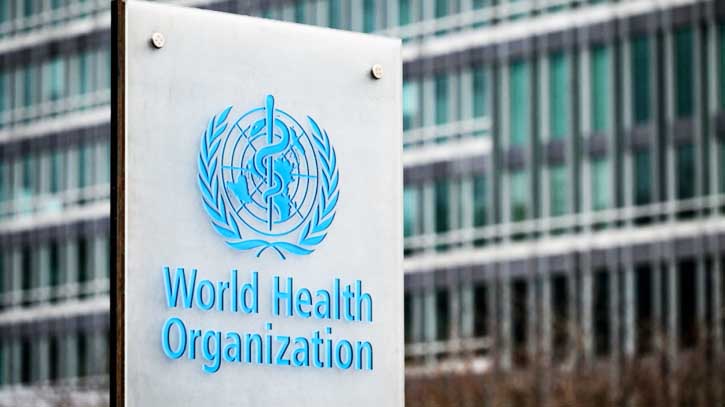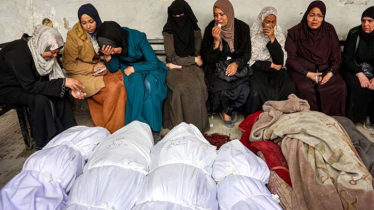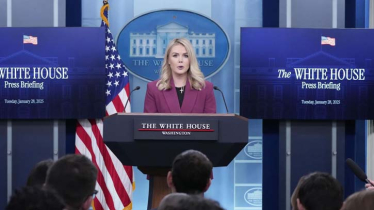
Photo: Messenger
In a move that has sent shockwaves through the international community, President Donald Trump signed an executive order on January 20, 2025, initiating the United States withdrawal from the World Health Organization (WHO).
Citing funding disparities and perceived mismanagement during the COVID-19 pandemic, Trump stated that the U.S. contributes disproportionately compared to countries like China and labeled the WHO’s handling of the pandemic as inadequate.
The United States, as the WHO largest financial contributor, plays a pivotal role in supporting global health initiatives. The decision to exit the organization could lead to significant restructuring within the WHO, potentially jeopardizing ongoing health projects and international collaborations. This marks the second attempt by Trump to sever ties with the Geneva-based health body; a similar move during his first term was later reversed by President Joe Biden.
The executive order mandates a halt to any future U.S. government funding, support, or resources directed toward the WHO. Federal agencies have been tasked with identifying alternative partners to assume activities previously managed by the WHO, aiming to ensure the continuity of critical global health initiatives. Additionally, the administration plans to review and potentially rescind the U.S. Global Health Security Strategy, introduced in 2024 to address global infectious disease threats.
The WHO has expressed regret over the U.S. decision, emphasizing the organization’s crucial role in addressing health emergencies and disease outbreaks worldwide. Global health experts warn that the withdrawal could compromise efforts to control infectious diseases and weaken international health security frameworks.
Implications for Bangladesh
The U.S. withdrawal from the WHO prompts critical reflection within Bangladesh regarding its reliance on the organization guidance and funding. Historically, the WHO has significantly influenced Bangladesh’s public health policies, notably in areas like communicable diseases and immunization programs. However, challenges in implementation persist, with some experts contending that WHO recommendations often lack customization to the specific needs of low- and middle-income countries like Bangladesh.
Additionally, the U.S. withdrawal has raised the question whether Bangladesh should reassess WHO-advised policies, particularly in areas such as tobacco control and pandemic preparedness. While the WHO’s policy frameworks have led to progress, critics argue that strict enforcement—such as aggressive tobacco taxation pharmaceutical regulations that require meeting WHO-prequalified standards which are very costly for Low and Middle Income Countries —must be balanced with local economic realities, including the livelihoods of those in the tobacco industry.
A comprehensive review published in the ‘Health systems in transition’ series by the World Health Organization (2015) highlighted that externally generated issues have significantly shaped Bangladesh health policy, sometimes leading to misalignment with local needs and contexts.
The potential U.S. withdrawal from the WHO could exacerbate these challenges, leaving the WHO even less equipped to undertake policies tailored to countries like Bangladesh. Financially, the U.S. exit could have ripple effects on Bangladesh’s healthcare sector. Washington contributes nearly 15% of WHO’s total funding, much of
which is directed toward global health programs, including those in Bangladesh. This could result in delays or reductions in WHO-backed health initiatives, particularly in areas such as maternal and child health, disease prevention, and emergency response.
Compounding these concerns is the recent suspension of U.S. Agency for International Development (USAID) funding to Bangladesh. Shortly after taking office, President Trump’s administration, under Secretary of State Marco Rubio, put a freeze on USAID assistance to Bangladesh, citing governance concerns. The USAID cut could further strain Bangladesh’s healthcare system, which relies on international partnerships for vaccine distribution, disease surveillance, and health system strengthening.
As global health dynamics shift, Bangladesh now faces a crucial policy crossroads. With the WHO facing inevitable budget cuts and uncertainty surrounding U.S. contributions, policymakers in Bangladesh may need to reconsider their long-term reliance on the organization’s recommendations and funding.
In light of these emerging challenges, Bangladesh could explore diversifying its partnerships by increasing collaboration with regional health organizations, development banks, and bilateral donors such as the European Union, China, and the Gulf states. The government will need to weigh its options carefully, balancing WHO guidance with national priorities, financial sustainability, and the broader geopolitical landscape of global health governance.
Messenger/Tareq








